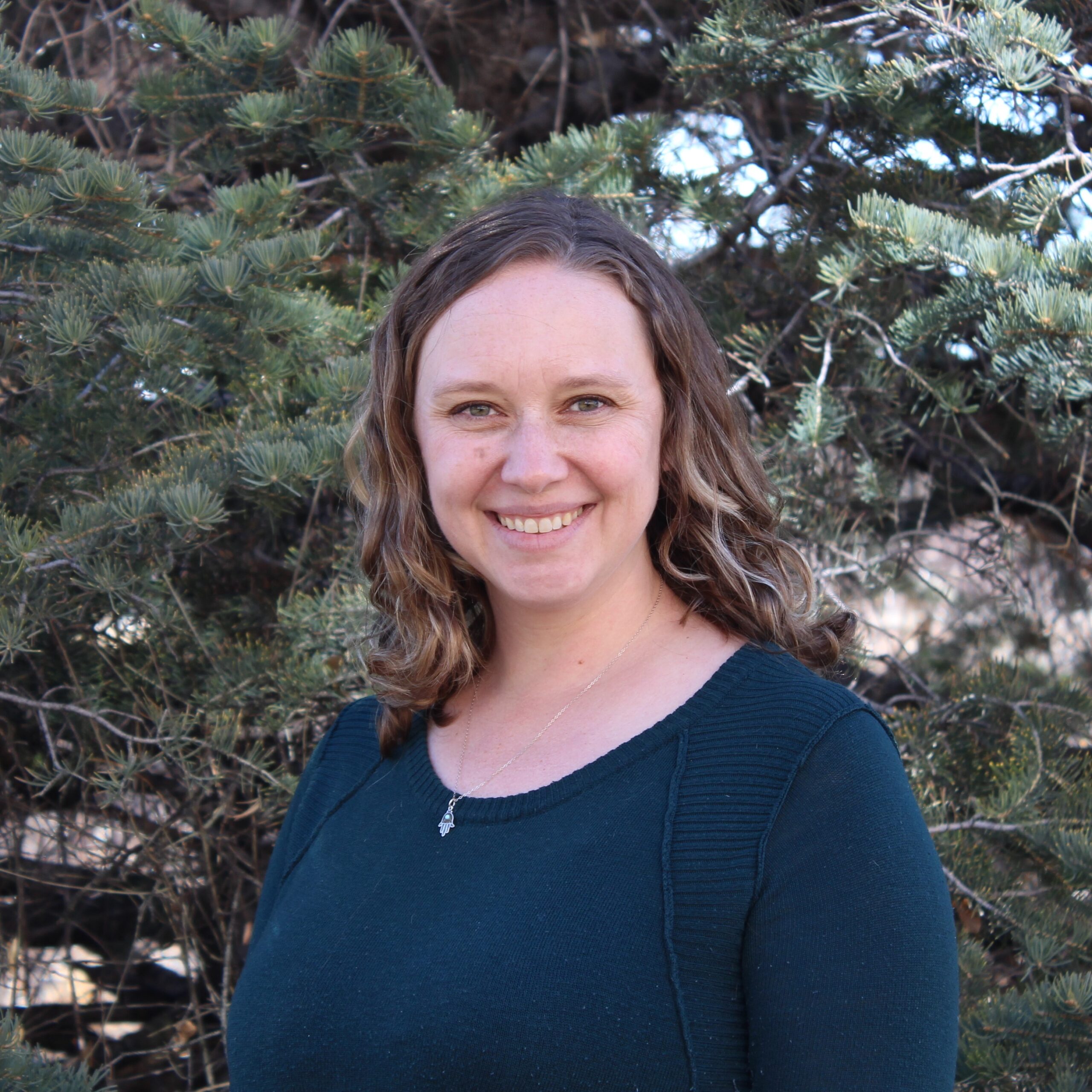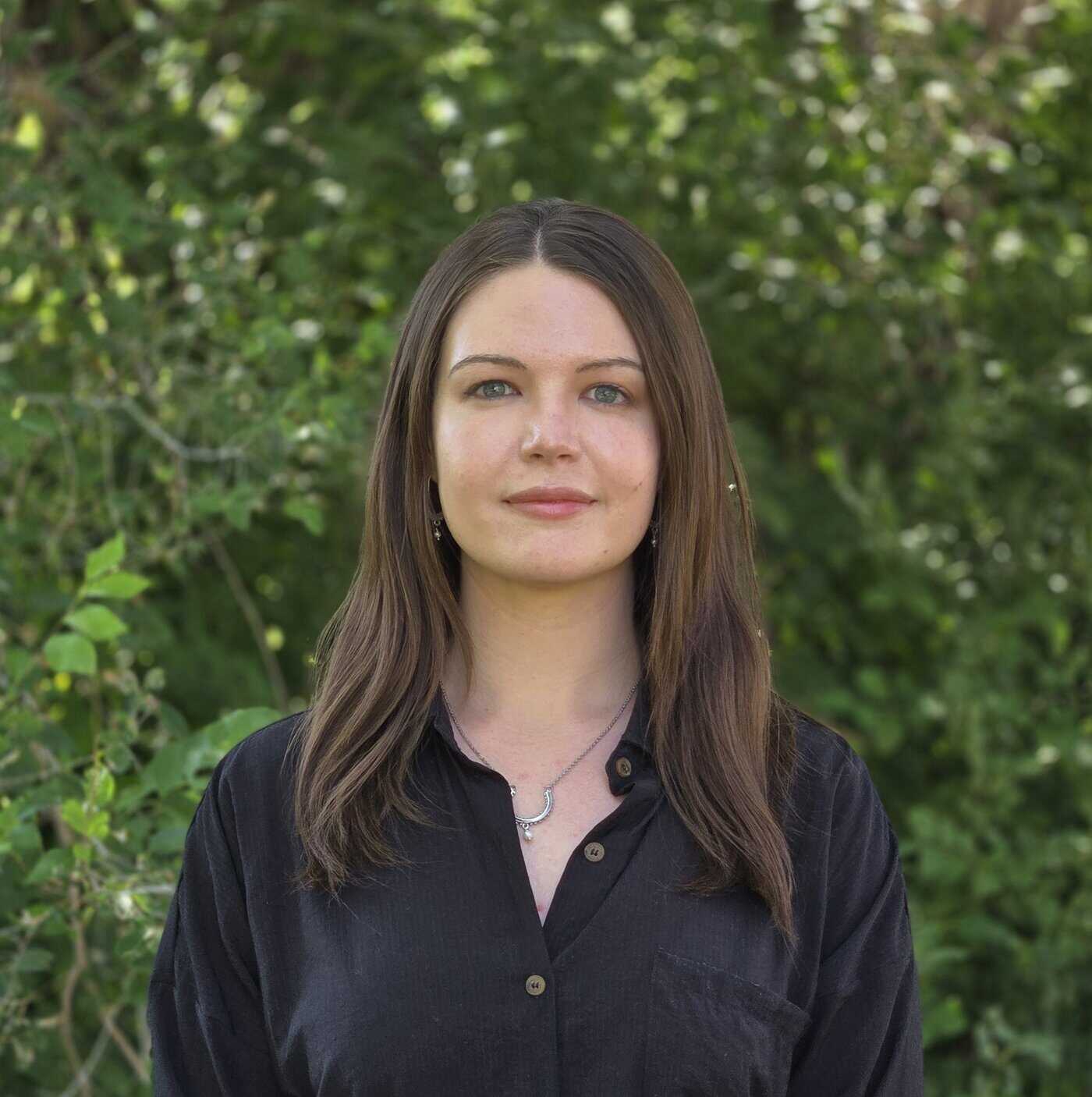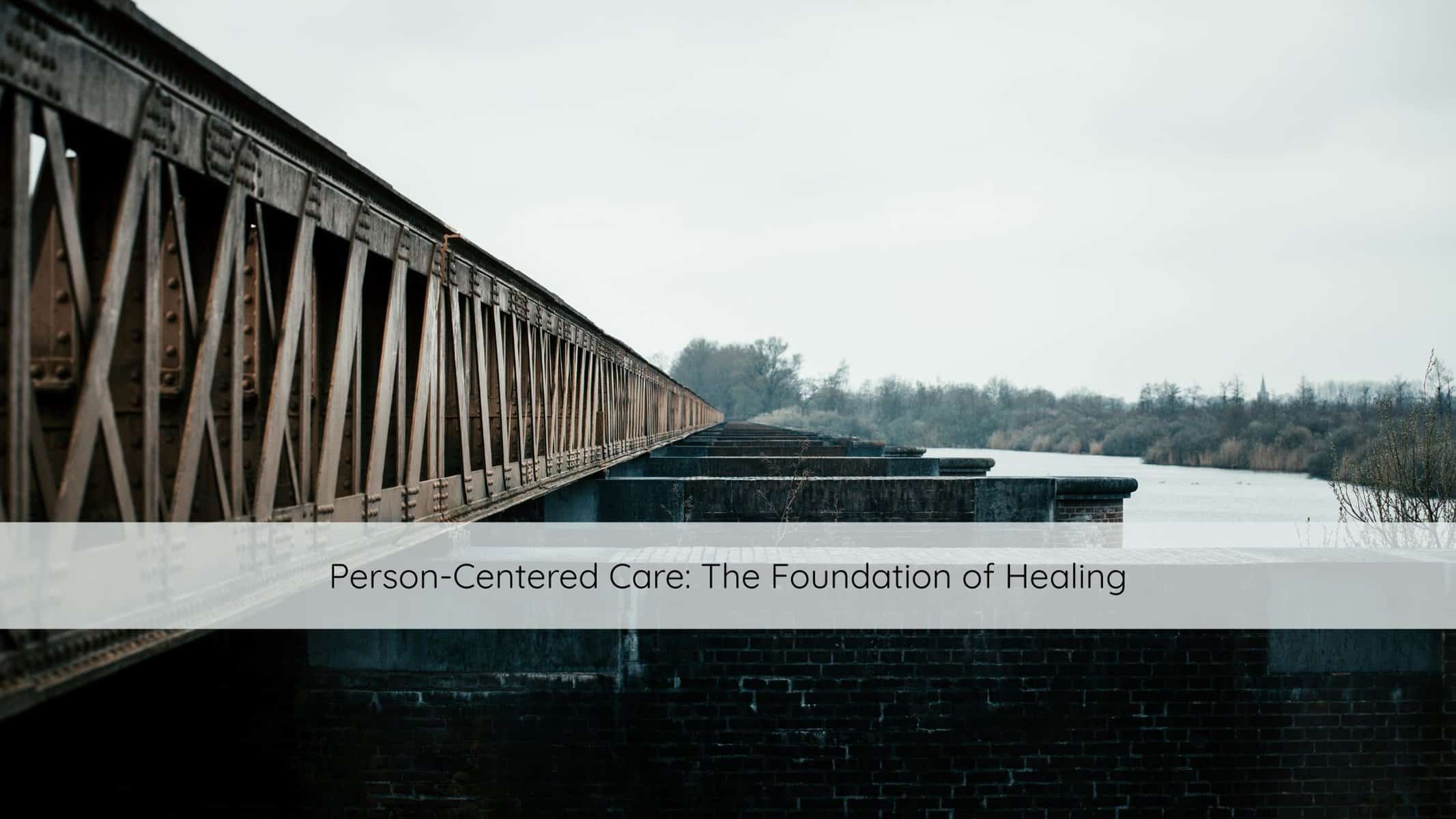EMDR Therapy in Denver
EMDR Therapy
Ages 5 – Adult
EMDR Therapy to Heal Trauma and Rewire Your Experience of the World
Are you struggling with overwhelming memories, anxiety that won’t ease up, or a deep sense that something just isn’t right—even though your life looks fine on the outside?
Trauma, anxiety, and painful experiences can live on in the nervous system long after the incident(s) has passed. You may feel stuck in patterns of fear, perfectionism, or emotional shutdown. Maybe you’ve already tried traditional talk therapy but still feel like something is missing—like your body and mind haven’t fully caught up to the safety of the present.
EMDR therapy (Eye Movement Desensitization and Reprocessing) is a powerful, research-backed modality that helps people heal from the effects of all types of trauma, anxiety, and negative beliefs. It works by engaging the brain’s natural ability to process and rewire distressing experiences.
“EMDR: Unleashing the power within to heal, transform, and thrive.”
~ Francine Shapiro
At The Catalyst Center, we offer care from EMDR specialists who bring extensive trauma expertise.
We provide holistic EMDR therapy in Denver that integrates other healing modalities, such Intensives, Ketamine-Assisted Therapy, and IFS.
What Is EMDR Therapy?
A Breakthrough Approach to Trauma Recovery and Nervous System Healing
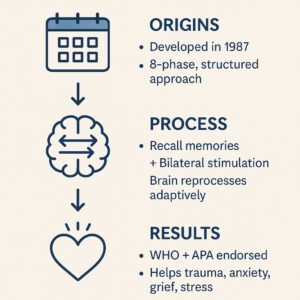 Developed in 1987 by psychologist Francine Shapiro, EMDR therapy is a structured, eight-phase treatment. It helps the brain reprocess distressing memories and emotions.
Developed in 1987 by psychologist Francine Shapiro, EMDR therapy is a structured, eight-phase treatment. It helps the brain reprocess distressing memories and emotions.
During EMDR, clients recall distressing experiences while engaging in bilateral stimulation. This can include eye movements, tapping, or audio tones. These actions allow the brain to integrate the experience in a more adaptive way.
Originally created to treat PTSD, EMDR is now used worldwide. It is supported by more than three decades of research. It’s recognized by the World Health Organization, the Department of Veterans Affairs, and the American Psychological Association as a frontline treatment for trauma and PTSD.
However, EMDR isn’t just for trauma. At The Catalyst Center, we use it to support clients facing anxiety, grief, low self-worth, chronic stress, and birth trauma.
Who Can Benefit from EMDR?
Supporting You Through Trauma, Anxiety, Grief, and More
While EMDR was initially developed for trauma, we’ve seen it work powerfully in many areas of emotional and psychological distress. It’s especially helpful when past experiences feel “stuck” in the body and mind.
- Heal from PTSD and complex trauma
- Address panic attacks, social anxiety, and phobias
- Reduce body image distress and support eating disorder recovery
- Work through grief and loss
- Let go of perfectionism and performance anxiety
- Improve relationships and build secure attachment patterns
- Release shame and rewire negative self-beliefs
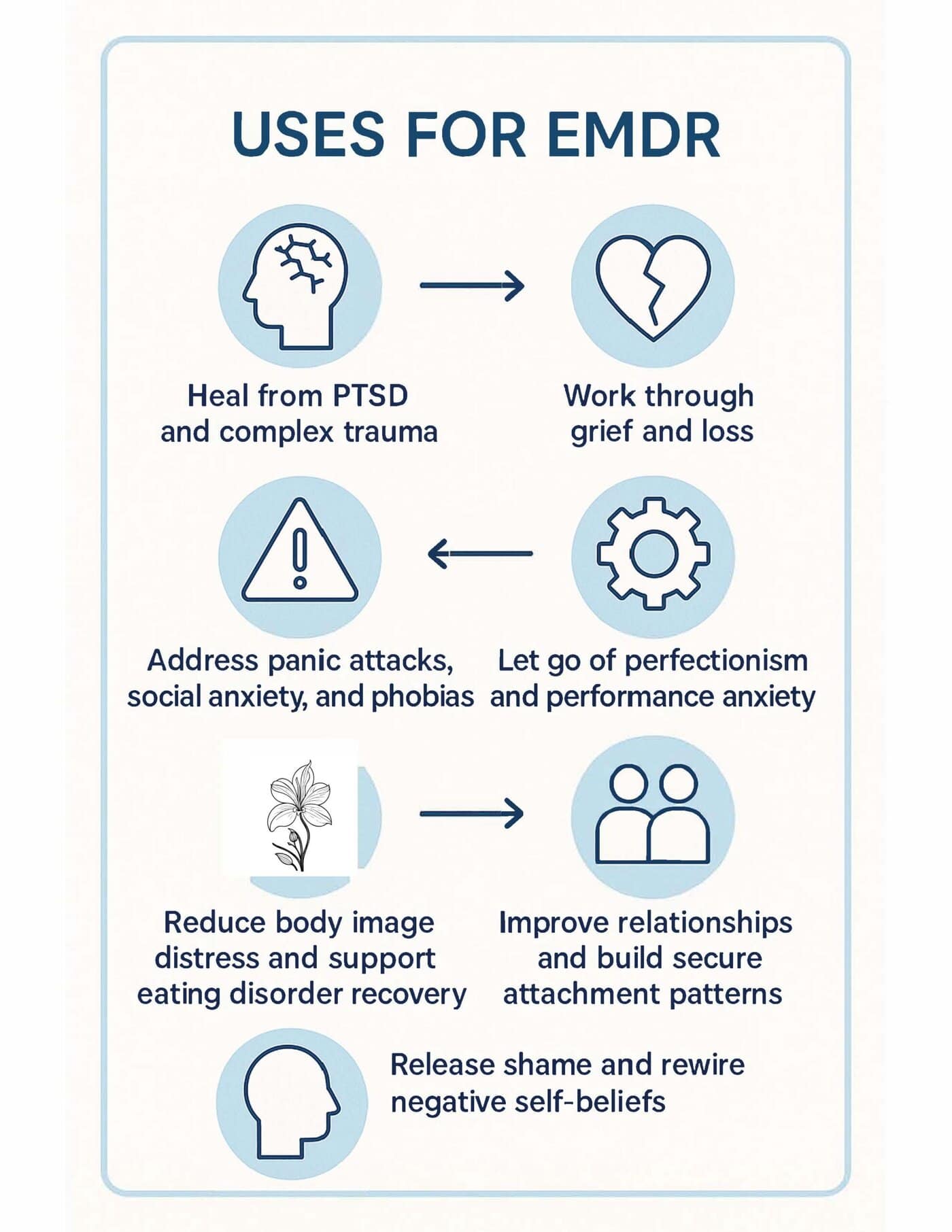
We also offer EMDR for couples, pediatric EMDR, and EMDR intensives. These options allow for deeper, focused healing in a shorter time frame.
When appropriate, EMDR can be integrated into other approaches. These include somatic therapy, Internal Family Systems (IFS), and Ketamine-Assisted Psychotherapy (KAP). This integration allows for a truly personalized healing journey.
Change Begins Here
Interested in learning more about EMDR and how it can support you?
Contact Us
Our Specialized EMDR Services
Beyond Talk Therapy—Targeted EMDR Support for Complex Needs
At The Catalyst Center, we go beyond standard EMDR therapy. Because we are a team of trauma specialists with advanced training in multiple modalities, we’re able to offer specialized EMDR services that many practices do not. These tailored approaches allow us to meet the unique needs of individuals, couples, and children with more individualized care that promotes lasting healing and long-term emotional wellbeing.
Pedatric EMDR
Our clinicians are experienced in using EMDR with children and teens to address issues like anxiety, family stress, and trauma. Whether your child has experienced bullying, medical trauma, or grief, EMDR can help them feel more grounded and resilient.
Attachment-Focused EMDR
Many of our clients struggle with relational wounds from early caregiving experiences. Attachment-Focused EMDR helps clients reprocess early relational wounds that impact present-day relationships and emotional regulation.
IFS and EMDR
EMDR and Psychedelics (Ketamine Assisted Therapy)
We are one of the few collaborative group practices to offer IM Ketamine-Assisted Therapy alongside EMDR. This combination supports clients in making sense of psychedelic experiences and promoting long-term healing.
EMDR for Couples
When relationships carry the weight of unresolved trauma carried by one or both partners, progress in couples therapy can feel limited. EMDR for couples allows partners to identify and shift trauma-driven responses—together. This approach supports deeper understanding and emotional repair.
EMDR for Eating Disorder Recovery
We use EMDR to help clients uncover and reprocess the trauma or beliefs that often underlie eating disorders. This can support recovery when combined with other approaches like somatic therapy.
Why Choose The Catalyst Center for EMDR in Denver, CO?
Expert Care from Trauma Specialists Who Honor Your Whole Self
Our Denver-based therapy team is deeply committed to holistic healing grounded in trauma expertise. Every therapist on our team is trained in EMDR therapy because we believe so strongly in its potential for healing. Many are certified EMDR clinicians or consultants with years of advanced experience.
What sets us apart?
- We specialize in trauma recovery and use EMDR alongside cutting-edge approaches like IFS, KAP, and somatic therapies.
- We offer EMDR for children, adults, and couples.
- We honor the mind-body-spirit connection and believe true healing involves your nervous system, your story, and your capacity for connection.
- We’re a collaborative, integrative team. If EMDR is part of your work with another therapist, we can coordinate care to support your process.
Whether you’re seeking relief from longstanding trauma, support through a difficult transition, or integration after a psychedelic journey, EMDR can offer a structured yet flexible path to healing.
Common Questions About EMDR Therapy
What if I already have a therapist?
If you’re currently working with a therapist but want to try EMDR, we’re happy to collaborate. Many clients do short-term EMDR work with one of our specialists while continuing their regular therapy.
How is EMDR different from talk therapy?
EMDR focuses less on retelling your story and more on helping your brain and body complete the healing process. It’s experiential, structured, and often faster-acting than traditional talk therapy.
Will I have to talk in detail about my trauma?
Not necessarily. One of the benefits of EMDR is that you don’t need to describe every detail. The focus is on how the memory lives in your nervous system—not just in words.
A bibliography of the extensive 35+ years of research about the benefits of EMDR can be found at the EMDR International Association’s website: www.emdria.org
Our Therapists Accepting New EMDR Therapy Clients
Hear From Our Team About EMDR Therapy in Denver
What It’s Really Like to Work With a Supervised Graduate Student Therapist
Person-Centered Care: The Foundation of Healing
Ego State Therapy: Healing Trauma by Embracing the Self in Parts
Combining Ketamine-Assisted Psychotherapy and EMDR
Begin EMDR Therapy in Denver
Healing is possible. Whether you’re navigating trauma, anxiety, or old emotional wounds, EMDR therapy can help you feel more grounded and whole.
Here are a few easy ways to reach out:
📞 Call 720-675-7123 and press “1” to speak with our intake team.
💬 Prefer online? Fill out the contact form to request an appointment or ask a question.
Or, if you’re ready, click below to schedule a free introductory call at a time that works for you.




